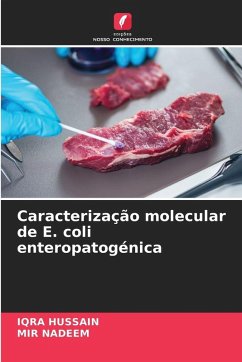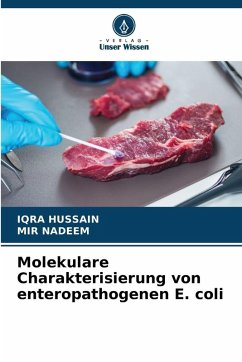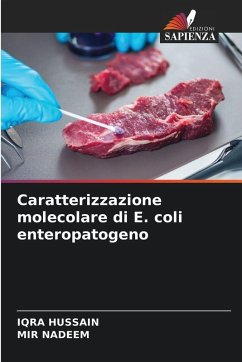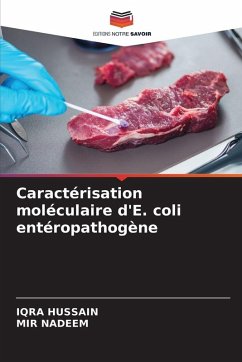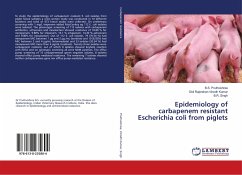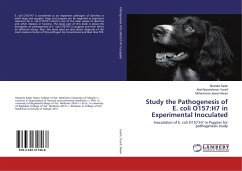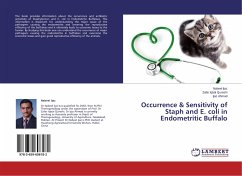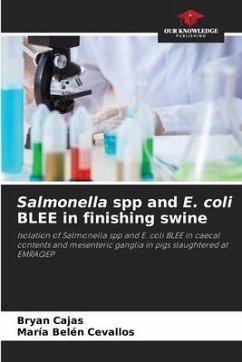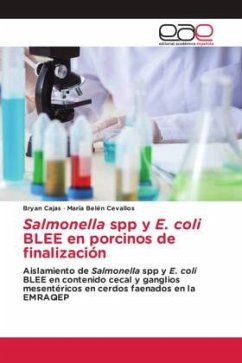
Molecular characterisation of Enteropathogenic E. coli
Versandkostenfrei!
Versandfertig in 6-10 Tagen
45,99 €
inkl. MwSt.

PAYBACK Punkte
23 °P sammeln!
This book deals with a detailed study of Enteropathogenic E. coli from food of animal origin and environment. Foodborne diseases are the diseases of infectious or toxic nature which are caused by the consumption of contaminated foods, beverages and water. Many different disease- causing microbes or pathogens can contaminate foods, so there are many different types of food borne illnesses. Infections caused by antimicrobial resistance E. coli and their isolation from food-producing animals are increasing worldwide. This scenario is regarded as a consequence of the selective pressure exerted on ...
This book deals with a detailed study of Enteropathogenic E. coli from food of animal origin and environment. Foodborne diseases are the diseases of infectious or toxic nature which are caused by the consumption of contaminated foods, beverages and water. Many different disease- causing microbes or pathogens can contaminate foods, so there are many different types of food borne illnesses. Infections caused by antimicrobial resistance E. coli and their isolation from food-producing animals are increasing worldwide. This scenario is regarded as a consequence of the selective pressure exerted on the gastrointestinal tract (GIT) of the animals by the overuse of antimicrobials. Antibiotic resistance has been reported by many researchers. Extended-spectrum b-lactamases (ESBL), produced by E. coli, offered resistance against higher generations of cephalosporin (except cephamycins and carbapenems) and monobactam. Currently, ESBL-producing organisms are becoming a major threat for patients in the hospital and community. spread of antibiotic resistance among micro-organisms, therefore proper and judicious use of antimicrobial agents is the need of hour to prevent spread of drug resistance.





